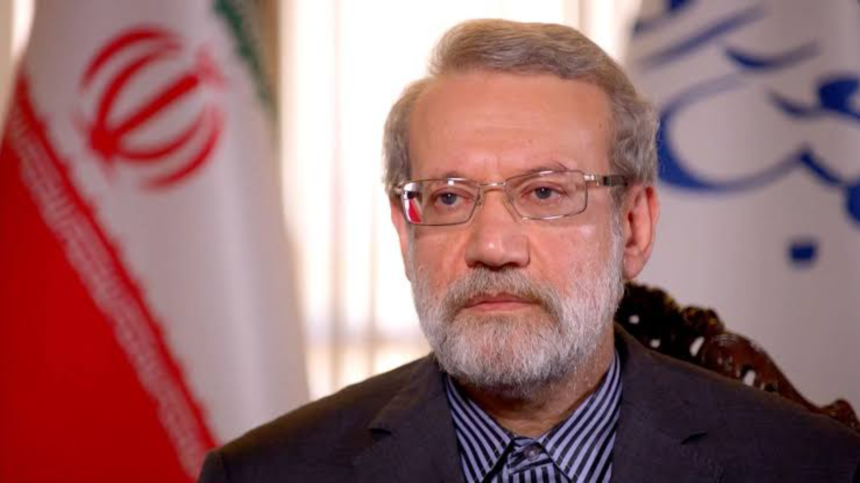Ali Larijani, a senior advisor to Iran’s Supreme Leader, has warned that a military action against the Islamic Republic would push Tehran to develop nuclear weapons.
Meanwhile, France has sounded the alarm about Iran’s nuclear program, warning that without an agreement by October, military confrontation will be “almost inevitable.”
Main Issue
Larijani, senior advisor to Supreme Leader Ayatollah Ali Khamenei, stated on April 1 that the United States must either treat Iran as an economic partner or as an enemy.
“They can talk about economic benefits and have fair cooperation with Iran on issues from which both sides benefit,” he said in a televised interview.
However, Larijani, a former parliament speaker and former national security advisor, added that military threats against Iran would only worsen the situation.
“If the U.S. or Israel attacks Iran under the pretext of nuclear issues, Iran could move towards creating a nuclear bomb,” he said.
U.S. President Donald Trump has threatened to bomb Iran if no agreement is reached on Tehran’s nuclear program.
The 2015 nuclear deal between Tehran and world powers, from which Trump withdrew in 2018, is set to expire in October. Once the deal expires, world powers will no longer be able to reimpose United Nations sanctions against Iran.
Acknowledging this fact, French Foreign Minister Jean-Noel Barrot warned on April 2 during an address to Parliament that in the absence of a new agreement, “military confrontation seems almost inevitable.”
Iran has rejected Trump’s proposal for direct talks, stating that it would agree to indirect talks if the U.S. president abandons his “maximum pressure” campaign. However, Trump claimed on April 3 that he believes Iran has changed its stance. On April 6, the Iranian Ministry of Foreign Affairs reiterated the same rejection of direct talks.
Barrot said that “our priority” is to reach an agreement that “sustainably limits” Iran’s nuclear program and that such a limitation could be monitored.
However, mixed messages have been coming from the U.S., with Special Envoy for the Middle East, Steve Witkoff, calling for the “complete dismantling” of the program.
Fabian Hinz, a researcher at the International Institute for Strategic Studies, said that recent military drills and the discovery of missile bases suggest that Tehran takes the military threat seriously. The increased U.S. military presence in the Middle East has undoubtedly influenced this perception.
He told Radio Farda of Radio Free Europe that a military strike would “buy time” rather than destroy Iran’s nuclear capabilities, as “knowledge cannot be bombed.”
Hinz argued that if Iran’s nuclear program is attacked, it will continue covertly. He added that identifying and targeting Iran’s supply chains could “significantly disrupt the nuclear program.”
Larijani’s statements, particularly regarding the potential development of a nuclear bomb, have provoked a strong reaction within Iran.
Reformist analyst Ahmad Zeidabadi said that the Islamic Republic is “only making the situation harder for itself and easier for the U.S. and Israel” when officials try to boast about Iran’s military strength and its ability to arm its nuclear program.
Culture Minister Abbas Salehi dismissed the possibility of Iran having nuclear weapons, insisting that the fatwa (religious decree) issued by Khamenei against the development of nuclear weapons will not change based on current issues because it is rooted “in religious principles.”
Hinz said that “from the Iranian perspective, it would make sense to take all of Trump’s actions very seriously because he killed one of the highest-ranking members of the regime,” referring to the 2020 assassination of General Qassem Soleimani, commander of the Quds Force of the Islamic Revolutionary Guard Corps.







